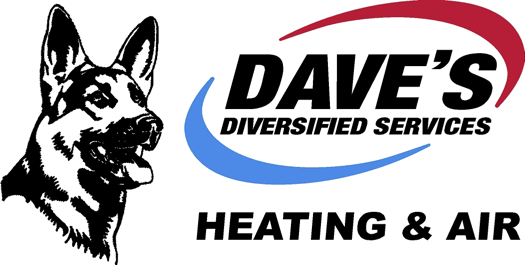
Ever done a double take when you viewed your last energy bill? Although high energy bills can be the result of severe weather events, consistently high bills can quickly suggest an inefficient HVAC system or your home is wasting energy through other means, including drafty windows or poor insulation.
One of the easiest ways to identify whether your home is using too much energy is by getting a home service expert to perform a home energy audit, also referred to as a home energy assessment. Keep reading to find out more about home energy audits, including what they are and their key elements.
What Is a Home Energy Audit?
An energy audit is a comprehensive inspection of how much energy your home uses and whether – and where – your home could be losing or wasting energy. An inspector will review previous energy bills while completing an energy audit to figure out where energy is being consumed and how much.
The general goal of an energy audit is to help homeowners save money on their energy bills by recommending energy-efficient renovations, which might include exchanging your existing HVAC system, putting in new insulation, plugging up leaks, or replacing loose windows.
Over the course of the energy assessment, the auditor performs an inspection of the outside and inside of your home. The auditor will perform a blower door test on doorways, windows and fireplaces to figure out if there are air leaks in your home. They’ll also check your home’s HVAC system, which also includes the ductwork, the water heater, and the insulation in your attic. Exhaustive assessments might also include inspecting your current lighting system.
Benefits of a Home Energy Audit
It can be difficult for the ordinary homeowner to know for certain how efficient their home is versus other similar homes in their community. However, local energy companies often supply information about where your home stands in comparison to similar homes and whether it’s more efficient, about average, or inefficient compared to your neighbors’ homes. This could be a useful starting point to figure out if you need an energy audit scheduled.
Several of the benefits of a home energy audit include:
Learning How Efficient Your Home Is
It’s beneficial to learn more about how efficient your home is and where you’re consuming the most energy. For example, if your ducts are leaking, it will result in a significant increase in your energy bills and excessive wear and tear on your HVAC system as it has to work longer to fully heat or cool your home.
Making Energy-Efficient Improvements
An energy audit can reveal where you need to make energy-efficient upgrades to save on energy and lower utility bills. This might include replacing worn-down weatherstripping or installing a new energy-efficient furnace.
Enhancing Health and Safety
Permitting air to slip into your home via doors and windows, or due to a lack of insulation can cause excessive moisture to form, which may negatively affect your home’s humidity levels or encourage mold. This can lead to health problems, especially for people dealing with asthma or allergies.
Increasing Your Home’s Retail Value
Energy-efficient homes are desired by homebuyers. You can sell your home sooner or for more money by showing prospective buyers that it’s energy efficient.
How to Perform an Energy Audit of Your Home
Although handling an energy audit independently might not be as comprehensive as choosing a professional, it’ll give you a general idea of how energy efficient your home is. If you don’t find any issues during the DIY test, then you probably don’t need to bring in a professional. Try this step-by-step checklist:
- Examine your HVAC system. Leaky ducts can lose nearly 20% of conditioned air, contributing to higher energy bills and greater strain on HVAC equipment. If you notice leaks, use duct tape to seal them. If your HVAC equipment is old and inefficient, upgrading to a new system can save you a considerable amount on your energy bills. In some cases, it can be better to hire a reputable HVAC company to inspect your system.
- Watch for signs of air leaks. Air leaks on average can raise the energy bills by 10 to 20%. Inside, look for air leaks in areas where there is a draft, such as along the edge of flooring and along baseboards and electrical outlets. Outside, you can look for air leaks along the home’s foundation, siding and mortar. Plug, caulk or seal any air leaks to save money.
- Examine insulation. If your home is older, it could mean your insulation is too. If you can see the joists, you likely need more insulation.
- Check ventilation. Ensure that all of your kitchen and bathroom exhaust fans are spinning properly, and inspect for evidence of rot or moisture.
Contact Dave's Diversified Services for a Professional Energy Audit
If you want professional help finding out how energy efficient your heating and cooling equipment is, contact the HVAC professionals at Dave's Diversified Services today. We’ve proudly served the residents of Front Royal with quality home services for years. Contact us today to set up an appointment.
